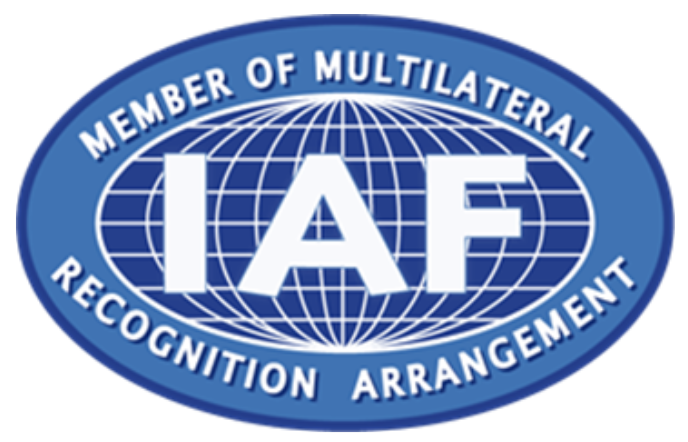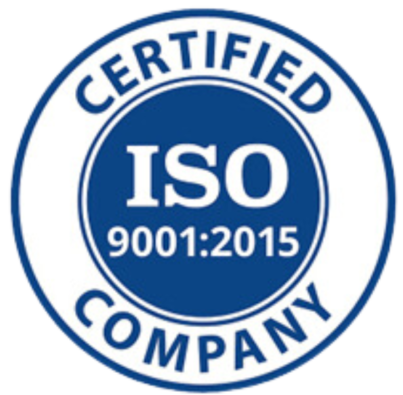Talk To Our Cyber Expert For Free.
HIPAA





Overview : Health Insurance Portability and Accountability Act Compliance
HIPAA (Health Insurance Portability and Accountability Act) establishes standards for the security of personally identifiable patient data. It governs the lawful use and disclosure of Protected Health Information (PHI) and is enforced by the Office for Civil Rights (OCR) under the Department of Health and Human Services.
ISO 27001
What is ISO 27001?
ISO 27001 is a globally recognized security standard that provides a framework for establishing an effective Information Security Management System (ISMS). It is part of the ISO/IEC 27000 series of standards published by the International Organization for Standardization (ISO) and International Electrotechnical Commission (IEC).
The ISO 27001 standard focuses on technical risk management controls and helps organizations establish, implement, operate, monitor, review, maintain, and improve their ISMS. It takes a risk-based and technology-neutral approach, allowing organizations to tailor their security controls according to their specific risks and needs.
Rather than prescribing a fixed list of controls, ISO 27001 provides a checklist of measures to consider and offers best practice recommendations outlined in ISO 27002. This flexible approach enables organizations to implement controls that align with their unique security requirements.
Even if your organization is not pursuing full ISO 27001 certification, familiarizing yourself with the standard and its controls is essential for following security best practices. Understanding the guidelines can help ensure that your organization adopts effective security measures and safeguards sensitive information.
CONTROLS
HIPAA Regulations
- Privacy Rules: We help organizations understand and comply with the HIPAA Privacy Rule, which establishes requirements for the use and disclosure of PHI.
- Security Rules: Our services address the HIPAA Security Rule, which outlines standards for safeguarding electronic protected health information (e-PHI) and protecting against threats and vulnerabilities.
- Breach Notification Rules: We assist organizations in adhering to the HIPAA Breach Notification Rule, which requires reporting and responding to breaches of PHI.
ISO 27001 REQUIREMENTS
ISO/IEC 27001 requirements
ISO 27001 Annex A provides a comprehensive set of 114 best practice controls that organizations can choose from to build an effective Information Security Management System (ISMS). These controls are divided into 14 clauses, covering various aspects of information security.
It’s important to note that since the 2013 update of ISO 27001, these controls are not mandatory. Instead, they serve as guidance for organizations during their risk assessments, allowing them to select and justify the controls that are most relevant and meaningful for their specific context.
The 14 control clauses of ISO 27001 Annex A are as follows:
A.5 - Information security policies
A.6 - Organisation of information security
A.7 - Human resource security
A.8 - Asset management
A.9 - Access control
A.10 - Cryptography
A.11 - Physical and environmental security
A.12 - Operations security
A.13 - Communications security
A.14 - System development and maintenance
A.15 - Supplier relationships
A.16 - Information security incident management
A.17 - Business continuity management
A.18 - Compliance laws and policies
Get a quick quote
Benefits

Enhanced Risk Management

Continuous Improvement

Stakeholder Trust

Improved Security Posture

Regulatory Compliance
Our Methodology
Our Approach to HIPAA Compliance
- 01. Covered Entities
- 02. Business Associates
- 03. Documentation
- 04. Compliance Assessments
- 05. Remediation and Training
We assist organizations classified as Covered Entities, which include healthcare insurance carriers and providers, in achieving HIPAA compliance. We help ensure the security and privacy of personal health information through the implementation of appropriate standards.
We also work with Business Associates who encounter PHI while working on behalf of Covered Entities. Our services help these entities meet their HIPAA compliance obligations and safeguard sensitive information.
We help organizations create and update Policies and Procedures aligned with HIPAA guidelines. Our in-house team ensures that the necessary paperwork, including information security policies, incident management procedures, and privacy statements, meets HIPAA standards.
We conduct comprehensive assessments to identify gaps and vulnerabilities in HIPAA compliance. Our experts evaluate security controls, risk management practices, and employee adherence to HIPAA regulations.
We provide guidance and support in implementing remediation measures to address compliance gaps. We also offer employee training to enhance awareness and adherence to HIPAA requirements.
WHY US?
By choosing our HIPAA Compliance Services, organizations can
- Ensure the confidentiality, integrity, and availability of electronic protected health information (e-PHI).
- Protect against anticipated threats to the security and integrity of health information.
- Safeguard against improper use or disclosure of PHI.
- Demonstrate compliance with HIPAA regulations and avoid potential penalties.
Frequently Asked Questions about HIPAA Compliance
HIPAA compliance refers to adhering to the regulations outlined in the Health Insurance Portability and Accountability Act (HIPAA). It establishes standards for the security and privacy of protected health information (PHI) and governs its use and disclosure.
HIPAA compliance applies to covered entities, such as healthcare providers, health plans, and healthcare clearinghouses, that handle electronic protected health information (e-PHI). Business associates, who provide services to covered entities and have access to PHI, also need to comply with HIPAA.
HIPAA compliance consists of three main components:
- Privacy Rule: Focuses on the protection of individuals’ medical records and other personal health information.
- Security Rule: Addresses the technical and administrative safeguards necessary to protect e-PHI.
- Breach Notification Rule: Requires covered entities to notify affected individuals and the relevant authorities in the event of a breach of PHI.
Non-compliance with HIPAA can result in severe penalties, including financial fines and legal consequences. The Office for Civil Rights (OCR) enforces HIPAA compliance and can impose fines based on the severity of the violation.
Becoming HIPAA compliant involves implementing the necessary policies, procedures, and safeguards to protect PHI. This includes conducting risk assessments, implementing security measures, providing employee training, and maintaining proper documentation.
A business associate is an entity that performs services on behalf of a covered entity and has access to PHI. Business associates are required to comply with HIPAA regulations and implement necessary safeguards to protect PHI.
HIPAA compliance is mandatory for covered entities and business associates that handle e-PHI. Failure to comply with HIPAA can result in penalties and legal consequences.
HIPAA compliance training should be conducted regularly and whenever there are updates to regulations or organizational policies. Training should be provided to all employees who handle PHI.
Yes, a business associate can subcontract services to other entities. However, they must ensure that the subcontractors also comply with HIPAA regulations and protect PHI.
If you suspect a HIPAA violation or breach, you should report it to the designated HIPAA compliance officer within your organization. They will initiate the necessary investigation and follow the appropriate breach notification procedures.
